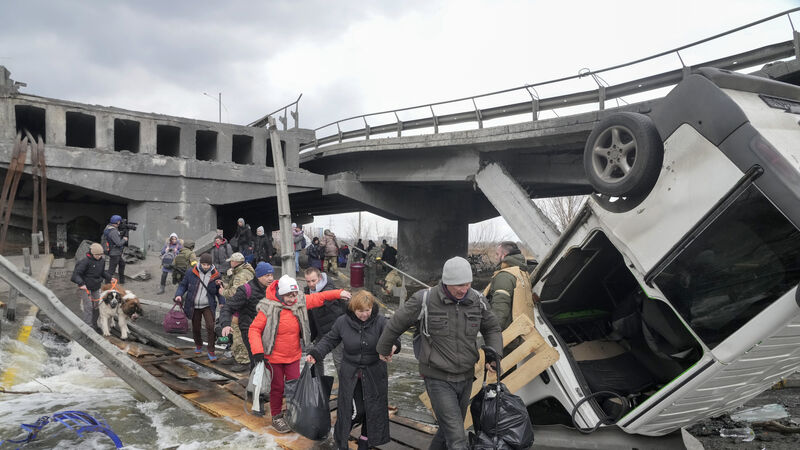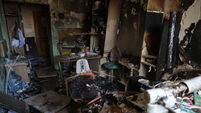Honesty and humility lacking in jingoistic war commentary

The reports and images of death and destruction also provide a sharp reminder of what is at stake as calls for Ireland to join Nato and end our long-standing position on military neutrality intensify. Picture: AP/Efrem Lukatsky
Did you know that if you ask any search engine the word for peace in the Ukrainian and Russian languages you will get quite a poignant result.
It is the same word in both languages — 'мир'.
















